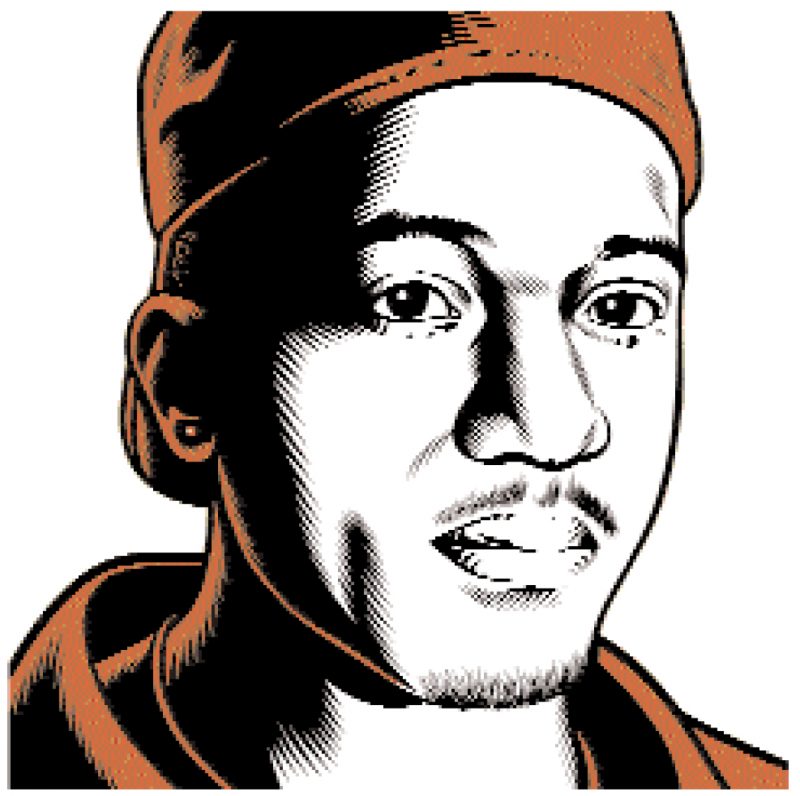Q-Tip was born Jonathan Davis and even though he’ll let you call him Q-Tip, most of his closest friends now use his Muslim name, Kamaal Fareed. He began his musical career in the late eighties as a teenager in the now-legendary group A Tribe Called Quest. Back then there was something in hip-hop that you might call innocence, and a group of smart, silly, afrocentric but not aggressively political kids from Queens, New York, charmed their way into hip-hop’s core with cute songs like “Bonita Applebum” and “I Left My Wallet in El Segundo.” Now hip-hop is conglomeratized, a multibillion-dollar business, and Tip has survived the breakup of A Tribe Called Quest and gone through two phases of a solo career, first with slick R&Bized hip-hop like Vivrant Thing and then with a never-released album of singing soul-music style with his funk band. He says he’s returning to straight-ahead hip-hop and will release a solo album this year, but in the music industry nothing is ever written in stone. A Tribe Called Quest is trying to get back together, but no one knows for sure whether that’ll work out, whether the men will be able to come together and make an album as good as the ones they made as boys. This interview was conducted at the Believer event in NYC on December 8, 2003, live onstage in front of a packed house.
—Touré
I. WILL THERE EVER BE MORE FROM A TRIBE CALLED QUEST?
THE BELIEVER: So Q-Tip, we’ve heard that A Tribe Called Quest is back together after a few years.What’s the deal?
Q-TIP: Okay, Tribe, let me just talk about it and deal with it and get it all out. The thing with Tribe is that we’ve never really had any… we’ve never really broken up in terms that we won’t speak with this one or this one doesn’t speak to that one. There was always…
BLVR: There was never beef?
QT: No, I mean as a group or band, you’re always going to have little beefs and whatever.
BLVR: It’s just the same as a relationship.
QT: Yeah, you know what I mean, we’ve had little tiffs and arguments and stuff. A couple’ve happened as soon as we got offstage.
BLVR: You’ve had moments where you did a show and as soon as you got offstage you were like… [whispers insults]
QT: We’ve had one moment where it was like that, and De La [Soul] was there and stuff like that, blah blah blah…
BLVR: [Laughs] Okay.
QT: It was interesting, but, anyway, like you know, we never disbanded in that sense, but we obviously went under the...
You have reached your article limit
Sign up for a digital subscription and continue reading all new issues, plus our entire archives, for just $1.50/month.
Already a subscriber? Sign in





